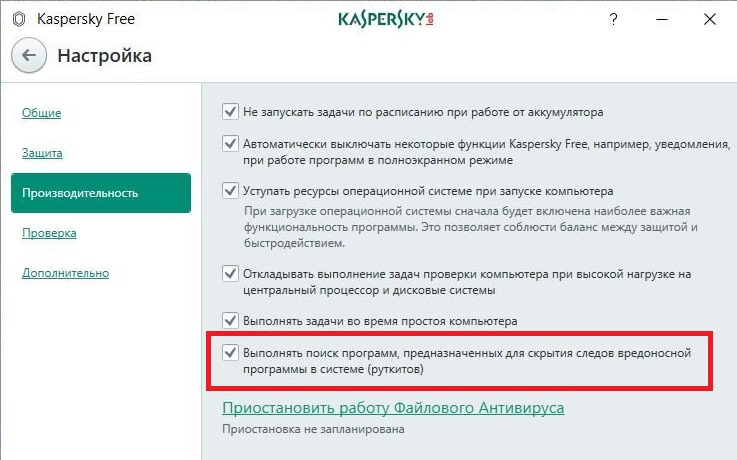Search for rootkits in Kaspersky - what is it, how to disable it
Installing antivirus software is a great way to protect your computer from hacker attacks and increase system speed by removing unnecessary junk. However, some functions of popular programs raise questions among users, especially if they delay the overall scanning process too much.
This material will tell you about such an option as “Search for rootkits” in Kaspersky antivirus. You will understand what this function is and how to disable it.
What is this function?
“Search for rootkits” is one of the many options in the scanner of the Kaspersky antivirus program. This function takes longer to scan and sometimes consumes too many PC resources and capabilities.
It is included in the work plan initially, which is provided for by the protocol for fully scanning the device for the presence of malware. Before moving on to disabling such manipulation, it is worth taking a closer look at its action.
What kind of virus is a rootkit?
A rootkit is a separate type of hacker utilities that are aimed at hiding the effects of viruses in system files and individual folders.
Such software appeared more than 20 years ago and still exists thanks to constant updating. Rootkit can be used to hide other viruses or act as a stand-alone injection tool.
The main “functions” of rootkits are:
- Organization of unauthorized access to a PC by hackers and intruders.
- Help in hiding program activities from antivirus systems and the built-in Windows scanner.
- Complete disabling of antivirus activity by penetrating the files of the defender program.
Most often used by attackers for phishing (theft of personal data), borrowing computer power for mining, organizing DDOS attacks, hiding the real location when conducting illegal operations on the Internet.

Rootkit is the most common and dangerous type of threat
Despite constant evolution and the possibility of hidden influence, most antiviruses are already able to detect the activity of a virus - thanks to in-depth search and intelligent analysis of the behavior of certain files.
However, this requires an increase in scanning time, as well as the use of additional power, which in combination slows down the computer, sometimes even disabling some programs.
How to disable rootkit scanning in Kaspersky
Due to such restrictions, some users want to disable the option to search for rootkits in Kaspersky - but is it worth doing? In fact, without this aspect, checking files is almost useless - it will only help you find open infections, which are rarely used by sophisticated hackers.
As a result, the user gets rid of only basic Trojans and worms, and the device continues to be attacked in stealth mode. Therefore, disable the function at your own peril and risk - we offer simple instructions for this:
- Open the Kaspersky client and go to the main screen.
- At the bottom there is a gear familiar to everyone - press it and get into the settings of the program.
- In the right menu we find the “Performance” column.
- The last item “Search for programs designed to hide traces of malicious programs in the system” is what you need.
- Uncheck the box on the left and restart the computer to rescan and save the data.

Conclusion
If you need to temporarily limit the operation of the program, simply disable the operation; there is no need to delve into the settings. This is done using the item below - “Pause file antivirus”, where you can configure the desired period of time to disable protection.
Important - after disabling the search for rootkits, your computer will become as vulnerable as possible, which also applies to files downloaded from the Internet. Don't forget to check the box again before checking again.
We hope this material explained to you the function of searching for rootkits in Kaspersky. Enjoy your use and maximum protection!
